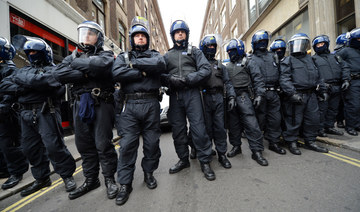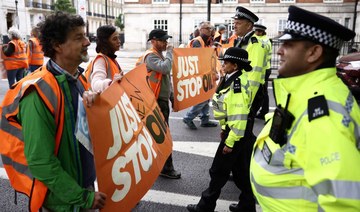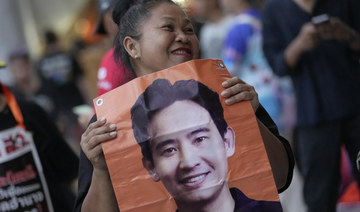JEDDAH: Two reputable Indian Muslim leaders have called for greater attention and vigilance by the community in preserving the ownership and protection of waqf (endowment) properties in the country.
Many prime tracts of real estate in India’s leading cities and states belong to Muslims but have been gradually taken over by corporate houses and government entities in connivance with corrupt officials on the different waqf boards.
Speaking to Arab News from New Delhi, Dr. Zafarul Islam Khan, president of the All India Muslim Majlis-e-Mushawarat, an umbrella body of the Indian Muslim organizations, and Dr. Syed Zafar Mahmood, a former high-profile bureaucrat who played a crucial role in the drafting of the famous Sachar Committee report and served as an adviser to former Prime Minister Manmohan Singh, feel that almost the entire political class has been united in “looting” waqf properties with impunity.
According to one estimate, there are nearly 600,000 waqf properties spread throughout the length and breadth of the country. Their estimated value runs into billions of dollars. The previous federal government put in place certain measures but they have fallen far short of the community’s expectations.Under Muslim law, waqf boards are supposedly the custodians of endowed properties.
Reacting to the Arvind Kejriwal-led Delhi government’s recent decision to nullify the powers of the Delhi Waqf Board, Khan said waqf boards existed in almost all Indian states and their members were all government appointees.
“It is very seldom that a good and sincere person gets onto these bodies and, if he does, he is soon removed as has happened some time ago with the administrator of the UP Sunni Waqf Board,” he said.
“Since they are all government appointees and have been given the jobs without any consultation with the community, they serve their masters and feel no qualms about stealing, selling and illegally transferring properties to their political masters,” he said.
In the case of Delhi, Khan said, the waqf board members were appointed by the previous government but the new chief minister must have felt that his hand-picked people should take charge. “As Kejriwal is a new player and somewhat conscious of corruption, the new appointees might be slightly better than the previous ones,” said Khan.
According to Zafar Mahmood, Section 99 of the Waqf Act 1995 provides for the stripping of the waqf board’s powers if there is prima facie evidence of financial irregularity, misconduct or violations according to the provisions of the Waqf Act.
“Surely, the Kejriwal government did its necessary work and so there appears to be nothing illegal about the decision,” he said. However, even when a board is dissolved or superseded, courtesy and tradition demand that the person appointed to perform the powers and functions of the board should be a Muslim, he said.
That was not the case in Delhi where the powers of the board were transferred to Revenue Secretary A. Ambarasu.
Zafar Mahmood feels, and rightly so, that there is no dearth of Muslim officers for holding the additional responsibilities. “The Kejriwal government did not take care of this aspect,” he said. “He should have taken Muslim sensibilities into account.”
He suggested that Kejriwal’s Aam Aadmi Party members must take a strong stand and write to the chief minister, requesting the appointment of a Muslim officer to look after waqf properties in Delhi.
According to Zafar Mahmood, many waqf properties currently under the Archaeological Survey of India (ASI) need to be extricated from it and restored to the boards.
“For that purpose a mechanism is in place, in the light of Sachar recommendations, whereby the officers of the Central Waqf Council and the ASI should meet every quarter with their decisions being minuted,” he said. “The CEO of each state waqf board should now be a Muslim officer not below the rank of deputy secretary. The leasing of waqf properties is not to be made at a price below the current market rate.”
He said the local community members have to systematically watch the process of removal of encroachment and against the misuse of waqf properties.
He said the CEOs and other officials of the 29 waqf boards in India and the Central Waqf Council need to undergo periodic refresher courses to keep them abreast of the latest laws, rules and court decisions.
Zafarul Islam Khan admitted that the previous Congress government passed the Waqf Act after a long delay “but even then left out the executive side despite our protestations and, because of that, the current law is useless and ineffective.”
He feels that the waqf properties should be in the hands of the community, following the example of gurdwaras and Sikh endowments which are in the hands of the Sikh community.
“Sikh gurduwaras are managed by officially elected representatives under the Shromani Gurdwara Parbandhak Committee Act which was originally passed in 1925 and was amended in 1971,” he pointed out. “No such benevolence was shown to the Muslims of India,” he lamented.
Indian Muslims call for protection of waqf properties
Indian Muslims call for protection of waqf properties
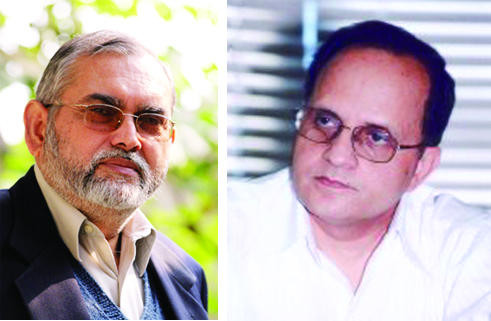
UK announces compensation package for blood scandal victims
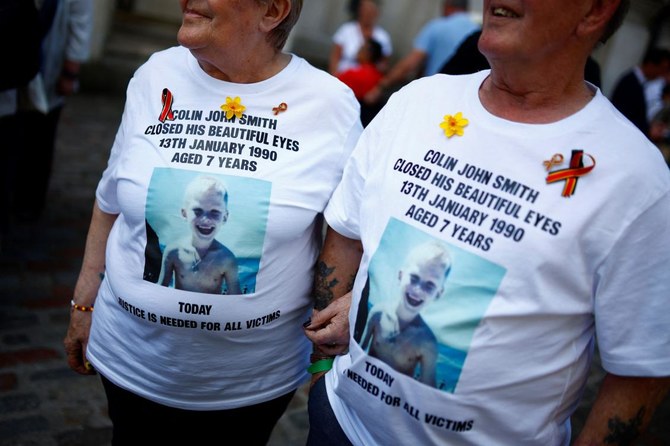
- Damning report blames successive governments, officials and doctors for failures that resulted in more than 3,000 deaths
“The government will be making further interim payments ahead of the establishment of the full scheme,” minister John Glen told parliament, a day after a damning report blamed successive governments, officials and doctors for failures that resulted in more than 3,000 deaths.
“Payments of 210,000 pounds will be made to living infected beneficiaries,” he added.
Prime Minister Rishi Sunak made a “wholehearted unequivocal apology for this terrible injustice” on Monday, adding that those affected would receive “comprehensive compensation.”
More than 14,000 displaced from Ukraine’s Kharkiv region: WHO

- WHO official in Ukraine: Conflict in Kharkiv ‘has significantly increased the number of trauma patients’
- UNHCR voices concerns that conditions in Kharkiv could become even more difficult if the ground assault and aerial attacks continue
GENEVA: More than 14,000 people have been displaced in recent days from Ukraine’s eastern Kharkiv region, where Russia launched a ground offensive on May 10, the World Health Organization said Tuesday.
The assault has seen Russian forces achieve their largest territorial gains in Ukraine in the last 18 months.
“Over the past two weeks, fighting in the Kharkiv region of Ukraine has severely escalated,” Jarno Habicht, the WHO’s representative in Ukraine, told a press briefing in Geneva, via video-link from Kyiv.
“Over 14,000 people have been displaced in a matter of days, and nearly 189,000 more still reside within 25 kilometers of the border with the Russian Federation, facing significant risks due to the ongoing fighting,” he said.
He said the UN health agency was using these figures after speaking with local authorities.
“With the worsening security situation, humanitarian needs in the region are growing, and growing fast,” Habicht said.
The conflict in Kharkiv “has significantly increased the number of trauma patients,” he added.
Russia launched its full-scale invasion of Ukraine in February 2022.
Since then, more than 20,000 amputations have been carried out, said Habicht.
And 200 ambulances per year, on average, have been damaged or destroyed in shelling attacks, “depriving the Ukrainian people of urgent care,” he added.
The UNHCR voiced concerns that conditions in Kharkiv — already home to 200,000 internally displaced people — could become even more difficult if the ground assault and aerial attacks continue.
“UNHCR, the UN refugee agency, is extremely worried about the worsening situation and resulting spike in humanitarian needs and forced displacement owing to the new ground offensive,” spokeswoman Shabia Mantoo told the Geneva briefing.
She said the Ukrainian authorities had evacuated more than 10,300 people from villages in the Kharkiv region’s border areas, while others have left by their own means.
“The majority of the evacuees, who had to escape their homes with only a few belongings, are already highly vulnerable and include mainly older people and those with low mobility or disabilities who were not able to flee earlier,” Mantoo said.
Those registered at a transit center in Kharkiv city have been given basic relief items and advised on accommodation options.
“The vast majority of evacuees have expressed a clear wish to stay with family members or in rental accommodation and collective sites in Kharkiv and not move further from their homes, to be able to return when the situation allows,” Mantoo said.
The United Nations’ 2024 humanitarian plan for Ukraine amounts to $3.1 billion this year. UN spokeswoman Alessandra Vellucci said that it was thus far only 23 percent funded.
1 dead, others injured after London-Singapore flight hit severe turbulence, Singapore Airlines says

- The airline said the aircraft was a Boeing 777-300ER with a total of 211 passengers and 18 crew on board
BANGKOK: Singapore Airlines says a person has died aboard and others were injured when a London-Singapore flight encountered severe turbulence.
Singapore’s Flight SQ321 from Heathrow was diverted to Bangkok and landed at 3:45 p.m. local time at Suvarnabhumi Airport, the airline announced in its Facebook page. The airline said the aircraft was a Boeing 777-300ER with a total of 211 passengers and 18 crew on board.
Local emergency crews from Samitivej Srinakarin Hospital were on site to transfer injured people off the runway for treatment. Videos posted on the LINE messaging platform by Suvarnabhumi Airport showed a line of ambulances streaming to the scene.
Britain’s new protest laws unlawful, London court rules in rights group’s challenge

- Civil rights group Liberty took the government to court over changes to public order laws made last year
- Judge rules new regulations gave the police almost unlimited powers to shut down protests
LONDON: Britain unlawfully gave police wider powers to impose conditions on peaceful protests which cause “more than minor” disruption to the public, London’s High Court ruled on Tuesday.
Civil rights group Liberty took the government to court over changes to public order laws made last year, which it says gave the police almost unlimited powers to shut down protests.
The case was heard in February amid a wider crackdown on protest movements in Britain and across Europe, as environmental activists have used direct action protests to demand urgent government action against climate change.
Judges David Bean and Timothy Kerr ruled in the group’s favor on Tuesday, finding that the regulations granting the new powers were unlawful.
The High Court granted the government permission to appeal and suspended its decision that the new powers should be quashed pending the outcome of the appeal.
Liberty’s legal action focused on the Public Order Act, under which the police can impose conditions on a protest if it could cause “serious disruption to the life of the community.”
The law was amended last year, so police could impose conditions in cases where a protest could cause “more than minor” disruption, which Liberty said was unlawful.
Government lawyers argued that ministers were given express powers to amend the law on what amounted to serious disruption.
But the High Court ruled that the government exceeded its powers, which “did not extend to lowering the threshold for police intervention.”
Thai minister quits over legal complaint seeking PM’s dismissal

- Pichit Chuenban says his resignation would allow the country ‘to move ahead and not impact the administrative work of the prime minister that needs continuity’
BANGKOK: A Thai minister at the center of a pending legal complaint seeking the dismissal of Prime Minister Srettha Thavisin resigned on Tuesday, in an effort to insulate the premier from possible repercussions.
A group of 40 senators lodged a complaint to the Constitutional Court last week against Pichit Chuenban, 65, saying his appointment last month as minister to the prime minister’s office breached the constitution, as he has a criminal record.
The court was due on Thursday to decide whether or not to accept the case, which could lead to Srettha’s suspension.
“Even though I have been vetted and honestly believe that I am qualified by law, this matter is linked to the prime minister,” Pichit said in his resignation letter, shared with media by Srettha’s office.
He said his resignation would allow the country “to move ahead and not impact the administrative work of the prime minister that needs continuity.”
It was not immediately clear whether the resignation would have any impact on the complaint submitted to the court.
Pichit was jailed for six months in 2008 for contempt of court after an alleged attempt to bribe court officials with 2 million baht ($55,000) hidden in a paper grocery bag.
His law license was suspended for five years by the Lawyers Council of Thailand after the incident. The government has said it carefully vetted Pichit’s qualifications and was confident it could defend his appointment before the court.
Pichit becomes the third minister to quit Srettha’s cabinet, after his foreign minister and deputy finance minister resigned following a cabinet reshuffle last month.
The senators, whose term has ended, are currently lawmakers in a caretaker capacity pending the selection of a new chamber. They have accused Pichit of lacking integrity and ethical standards to hold a ministerial post.
Government critics say Pichit was appointed due to his close relationship with a client, ex-premier Thaksin Shinawatra, who returned to Thailand last year after 15 years in exile. Thaksin, an ally of Srettha, still wields considerable political influence, despite officially being retired.
The government has insisted Pichit was appointed due to his capabilities.




